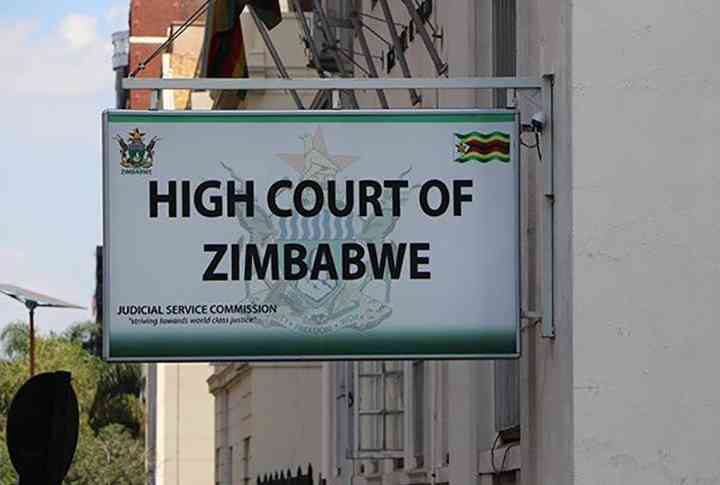
MUTARE — Silindiwe Moyana, an HIV-positive mother of five from Chipinge, east of Zimbabwe, cannot hide her anxiety. She is worried she might not survive this year as drought-induced starvation stalks her and her family. The country is in the throes of a devastating drought which has compromised the nutrition of people living with HIV.
STAFF
Experts have linked the current drought to El Nino. It has occurred just when the country is still smarting from the earlier drought that hit the 2014/15 farming season.
“We have anti-retroviral drugs but we don’t have food,” Moyana said dejectedly. “Water for drinking is now very scarce too. Nutrition is very important for people who are taking anti-retroviral drugs, but we have no food. We are facing serious challenges.”
With an estimated 1,2 million HIV-positive people, Zimbabwe is one of the countries in Africa heavily burdened by this pandemic. The country has historically had one of the highest HIV and Aids rates in the world, but has been commended in recent years for its success in reducing infection rates.
In 2013, the Global Fund granted Zimbabwe $555 million to support anti-retroviral treatment for more than one million people between 2014 and 2016. Currently, more than 700 000 HIV positive Zimbabweans are on the government’s free anti-retroviral treatment programme. But there are already fears that the gains scored on the back of the nationwide free anti-retroviral therapy might be eroded by the current drought.
Up to 2,4 million people in the country are food insecure this year, according to figures released by the government in February this year. The Zimbabwe National Network for People Living with HIV/Aids co-ordinator for Manicaland province, Lloyd Dembure said the current drought had affected a large number of people living with HIV.
- Chamisa under fire over US$120K donation
- Mavhunga puts DeMbare into Chibuku quarterfinals
- Pension funds bet on Cabora Bassa oilfields
- Councils defy govt fire tender directive
Keep Reading
He elaborated that though many people living HIV had access to free anti-retroviral drugs, many where going for days without a proper meal.
“The situation is bad. The bulk of our members are poor and they can’t take anti-retroviral drugs on empty stomachs. It might force other people quit these drugs altogether,” he said.
Health experts say if one defaults on HIV treatment, the virus mutates and becomes resistant to drugs being taken.
“We are urgently calling for food relief for people living with HIV,” Dembure said, adding that the situation has been compounded by the HIV and TB core-infections. And many people living with HIV are also taking TB drugs.
“These drugs are powerful and need good nutrition,” he emphasised.
Casper Pound, an HIV-positive man living in the eastern border city of Mutare, said a lot of people living with the virus were suffering as a result of the drought.
“People living with HIV are going through a tough time as far as nutrition is concerned. It becomes difficult to take medication on an empty stomach,” said Pound, who also heads an HIV and Aids pressure group, Family Aids Support Organisation.
According to Zimbabwe’s National Aids Council (NAC) more than 60 000 people succumb to Aids each year. And at 15%, Zimbabwe has among the highest rates of HIV prevalence in Africa. In absolute numbers, more than 1,3 million people are living with it. The free anti-retroviral therapy programme in Zimbabwe started over a decade ago with the objective of reducing morbidity and mortality due to HIV and Aids and improving the quality of people living with it.
At least 618 000 adults living with HIV were on anti-retroviral therapy while 46 000 children were on the same programme by December 2014.
But NAC’s spokesperson, Tadiwa Pfupa, argued it was not the duty of the council to provide food supplements to people living with HIV.
“There are other government departments responsible for that (giving supplementary feeding to HIV people),” he said.
However, a report by the Food and Agriculture Organisation said HIV and Aids and nutrition were intimately linked.
“Poor nutrition can damage the immune system and contribute to the acceleration of full-blown Aids,” the report said.
An adequate, well-balanced diet is therefore an essential component of basic care for people living with HIV/Aids.
“Given the lack of medical care and drug treatment in most Aids affected developing countries, it is imperative that vigorous efforts to achieve and maintain good nutrition among HIV-infected people are undertaken as a matter of priority,” the report added.
And in an effort to avert catastrophe, the government has acquired 650 000 tonnes of maize (a staple in Zimbabwe) from Zambia and Ukraine for national consumption. The maize was acquired at a cost of $200 million.
And because of the drought, the country is expecting a maize harvest of not more than 200 000 tonnes, far below the national requirement of at least 1,4 million tonnes. The government has since appealed for $1,6 billion in aid to feed up to a quarter of the national population that is on the verge of starvation. The local media quoted Zimbabwe’s Vice-President Emmerson Mnangagwa as stating that “We are now putting up logistics for the delivery of the maize.” — IPS











